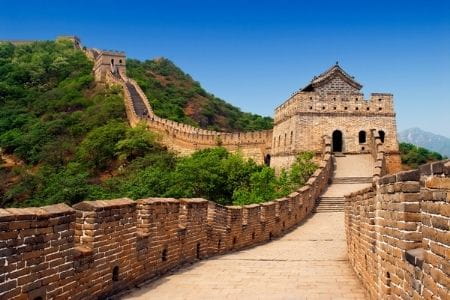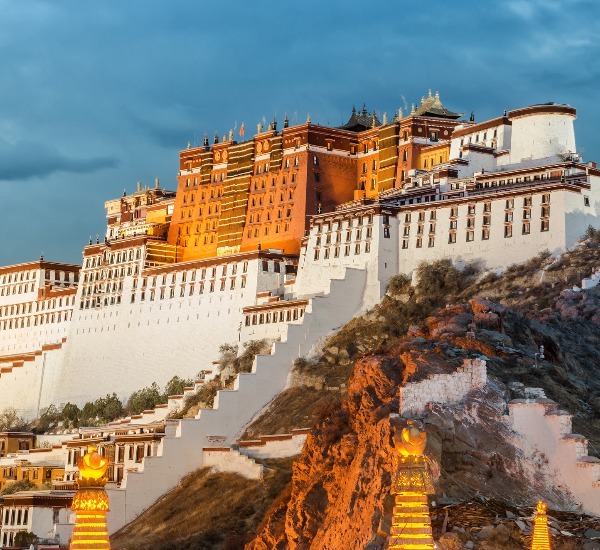20 Excellent Suggestions For Picking China Tour Websites
20 Excellent Suggestions For Picking China Tour Websites
Blog Article
Top 10 Tips To Shop For Regional Specialties In China
1. Research before you goTip Learn about what each area is famous for. Suzhou, Jingdezhen and Tibet are all famous for their respective items.
Pro Tip: Concentrate your shopping efforts so that you don't the time wasting.
Cons: It is a process that requires the preparation of a local expert and a familiarity with local landmarks.
2. Buy Locally to Ensure Authenticity
Purchase directly from the source that you are from to guarantee authenticity and quality.
Pro: Supports local artisans and decreases counterfeiting.
Con: Requires travel into rural regions or lesser-known tourist destinations.
3. Visit Artists or Workshops
Shop in small boutiques or hubs of artisans instead of traditional stores.
Pro: You'll gain a better understanding of the craft and you can purchase directly from the makers.
Con: Handmade items can be more expensive and are harder to negotiate.
4. Find out more about the cultural significance
Discover the historical context of items like jade carvings, cloisonne, and calligraphy.
Pro: Boosts your appreciation of the item and provides meaning.
Pro Time: Takes time to appreciate the cultural nuances.
5. Be sure to check the quality by taking care.
Verify the quality of embroidery ceramics, tea, and embroidery to ensure that they meet your standards.
Pro: It'll save you from disappointment because you'll get exactly what have to.
Cons: You'll need guidance or expertise to know what is a high-quality product.
6. Beware the mass-produced goods
You should seek out items that are original and handcrafted rather than replicas that are mass-produced.
Pro: Make sure you return home with a unique souvenir.
Con: Genuine craftsmanship is costly and difficult to locate.
7. Compare Prices
Tips: Visit multiple stores or stalls to compare prices for the same item of interest.
Pro: It assists you to identify reasonable costs and help you avoid overcharging.
Con: It can be time-consuming, especially in large markets.
8. Buy Tea From Trusted Vendors
Tip - In areas like Hangzhou or Fujian there are trusted Tea Houses in Longjing and Tieguanyin.
Pro: Assures authenticity and superior quality.
Cons: It may be difficult for newcomers to determine the quality of tea.
9. Local Customs Learn about them
TIP: Some sellers could expect or even encourage you to bargain.
Shopping with a twist of culture is a fantastic way to enjoy yourself.
Con: Not knowing the rules can lead to awkward interactions.
10. Pack judiciously
Plan your transport of bulky or fragile regional items like Silk or ceramics to home.
Pro: It protects the items and ensures they arrive in good shape.
Con: Adds logistical challenges and costs that could be associated with shipping.
Benefits of shopping locally for Specialties
Unique souvenirs: Local specialty items are unique and cannot be that can be found anywhere else.
Cultural Immersion - Purchasing local items connects you to the local culture, craftsmanship and heritage.
Direct purchases made by artists help local economies.
The cons of shopping regional specialties
Security Concerns About Authenticity : The risk of buying lower-quality or imitation versions.
Transporting heavy or fragile items isn't easy.
Higher prices: Handcrafted products, in particular, can be very expensive.
Following these tips will help you shop with confidence for local cuisine and make sure that the purchases you make in China are memorable. See the top rated discover this must-visit location for blog recommendations including eating in zhengzhou, binhai aircraft copyright theme park in tianjin, chinese furniture the development history of chinese furniture, four gentlemen in chinese culture, the top 4 movies about kung fu and chinese culture, chinese kites a phoenix shaped kite, chinese kites a phoenix shaped kite, eating in dunhuang, hohhot transportation, tours for the disabled and more.
Top 10 Tips For Visits To The Temples Of Fame During Seasonal Visits In China
1. Go during off-seasons generally from November through January. The temperature will be cooler and there will be less tourists.
Pro: It's quieter and offers an ambiance that is more peaceful.
Cons: The weather may be colder and this could make outdoor temple visits uncomfortable.
2. Be prepared for weather extremes
Tips - Temperatures can vary drastically in the different seasons. Winters can be extremely cold, while summers are often hot. Prepare for the weather.
Pro: Having prepared for any weather conditions You'll be comfortable during your trip.
Con The challenge of packing for extremes of weather patterns can be difficult, especially when you travel light.
3. Visits during the spring and Summertime to view Vibrant Flora
Tips: If you go to temples between spring and summer it is possible to enjoy stunning gardens with flowering plants and lush landscapes.
Beautiful scenery enhances the experience of visiting temple grounds.
Con: Summers tend to be very hot, and can get crowded.
4. Consider Festivals & Special Events
Make sure to plan your visit so that it coincides with festivals that are traditional, such as the Chinese New Year (January/February), or the Mid-Autumn Festival. These seasons are full of ceremonies, celebrations and a chance to experience the temple's vibrant culture life.
Pro: The temples provide an experience that is unique and lively, featuring a variety of traditional events.
Con: Temples are often packed. Accommodation prices may be higher during festivals.
5. Avoid Peak Holiday Seasons
TIP: Avoid visiting temples during tourist peak seasons, such as Chinese New Year and Golden Week (October), as they are likely to be crowded by both local and foreign tourists.
Pro: More tranquil visits, without the crowds offering a more spiritual experience.
Con: You could miss some of the festival special events if you are in the area during peak times.
6. Be aware of winter closures for Temples.
Check ahead of time. Certain temples, particularly in remote or northern areas, may only be accessible during specific hours or close entirely during winter. Always check in advance.
It stops you from taking unnecessary trips, and lets you plan other activities.
Con Cons: Temples that are closed or have reduced hours may be disappointing.
7. Early Morning Visits in the summer
If you're planning to visit during the summer months, make sure to arrive early to stay away from the heat of midday. The majority of temples be open from dawn. It is a quiet moment with less people.
Pro: A cooler and more peaceful experience, without crowds.
Cons: The early wake-up time could not be ideal for everyone.
8. Be prepared for rain during the summer
The summer can bring heavy rainfall, especially to southern China. Bring rain gear and an umbrella for trips in the summer.
Pros It's still gorgeous even if it's pouring rain.
Con: Rain may interfere with outdoor activities and cause temples to become slippery.
9. Visit temples in the mountains in the fall.
TIP: Visit temples located in mountainous areas such as Mount Wutai (or Mount Emei), during autumn. The temperature is cool and the autumn leaves make an incredible scene.
Pros: The cooler temperatures make outdoor activities and hiking more pleasant, and the mountain views are breathtaking.
Con A: Mountain temples that are well-known can still draw large crowds, especially on weekends or holidays.
10. Make use of the Lunar Calendar to Plan Specific Events
TIP: Many temples use the lunar calendar of China Some ceremonies or events are linked to certain dates. It is important to check the calendar in order to be able to participate in major events, such as the Lantern Festival, Buddha’s Birthday and other temple events.
Pros Unique cultural experiences as well as a greater understanding of the local practices of spirituality.
Cons: The lunar calendar may make you plan your trip with more care and could not be in sync with the events occurring at the time.
The Benefits of Visiting Chinese Temples in Season
Less crowds during off-season visits are a quiet and reflective experience.
Festivals are an excellent opportunity to get immersed in the cultural and religious traditions of your local area.
Scenic Beauty: Spring or autumn is the ideal time to see stunning landscapes, lush gardens, and temples.
Cooler weather The autumn and winter months are perfect for exploring temples.
Pros and cons of visiting Chinese temples during the holiday season
Uncertain Weather: Winter may be cold, while summer could be hot, which could impact your comfort.
Temple Closures: Certain temples could have restricted hours or be closed during the off-season or extreme weather months.
The crowds at festivals are often a problem. festivals and holidays can draw huge crowds, making it difficult for people to fully experience the peaceful atmosphere of the temple.
Special Events: Certain special events or celebrations might not be held if you visit outside the proper time frame.
Pick the best time to visit China's most famous temples and plan accordingly. This will ensure you'll have an unforgettable experience. Understanding the seasonal dynamics of the temples will allow you to make the most your visit, whether you're seeking peace or cultural celebrations. Follow the top learn more about this destination for blog tips including eating in changchun, top three buddhist temples in chengdu, shopping in dunhuang, chinese festival cuisine, tours for the disabled, the origin and history of the mysterious chinese dragon, eating in fuzhou, shopping in nanjing, eating in zhengzhou, temple of confucius one of the three largest ancient architectural complexes and more.